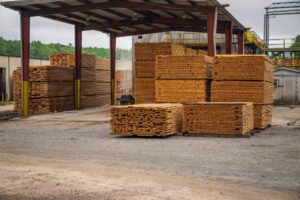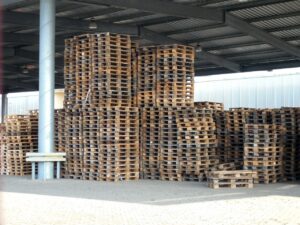Switching to a bamboo toothbrush might be a small change, but it can have a big impact on both your health and the environment. As India embraces eco-friendly alternatives, bamboo toothbrushes are gaining popularity, with more people becoming aware of plastic pollution. But are they worth the switch? This guide explores everything you need to know about bamboo toothbrushes, their pros, cons, and a comprehensive FAQ.
Why Choose a Bamboo Toothbrush?
Plastic toothbrushes are one of the largest contributors to landfill waste, with the average Indian using about 300 plastic toothbrushes in their lifetime, which typically take over 400 years to decompose. Bamboo toothbrushes, in contrast, are a sustainable option with a biodegradable handle, reducing environmental impact significantly.
Pros of Bamboo Toothbrushes
1. Eco-Friendly and Biodegradable
Minimal Waste: Unlike plastic toothbrushes, bamboo handles can be composted, reducing waste.
Natural Material: Bamboo is a renewable resource that grows quickly, absorbing large amounts of carbon dioxide as it grows.
2. Anti-Microbial Properties
Bamboo is naturally antimicrobial, which can help prevent the buildup of bacteria on the toothbrush handle.
3. Sustainable Manufacturing
Bamboo cultivation requires no pesticides or fertilizers, making it a cleaner, more sustainable option.
4. Supports Local Economies
India has bamboo-rich areas, especially in states like Assam and Arunachal Pradesh. Supporting bamboo products helps support local farmers and industries.
5. Minimal Carbon Footprint
Most bamboo toothbrushes are produced locally or require fewer resources, reducing their overall carbon footprint compared to plastic toothbrushes.
6. Natural Aesthetic Appeal
Bamboo toothbrushes have a rustic, minimalistic look that can appeal to those who appreciate natural decor. They add an eco-chic touch to the bathroom and appeal to those who enjoy sustainable aesthetics.
7. Hypoallergenic Properties
Bamboo’s natural properties are gentle on sensitive skin, which makes these toothbrushes a great choice for people with allergies to synthetic materials or sensitive gums.
8. Minimal Chemical Use in Production
Unlike plastic, bamboo doesn’t need intensive chemical processing, making the production process safer and with fewer toxic by-products. This eco-friendly manufacturing process appeals to those concerned about environmental impact.
9. Composting Option for Zero-Waste Lifestyle
For those aiming for a zero-waste lifestyle, bamboo toothbrushes fit perfectly. The handle can be composted, making it an ideal choice for people committed to reducing their overall waste footprint.
10. Lower Water Requirement for Bamboo Cultivation
Bamboo is a highly sustainable crop that requires less water than many other resources, especially compared to the petroleum and water-intensive process of creating plastic. This adds another ecological benefit, especially important in water-scarce regions.
11. Absorbs Carbon Dioxide
Bamboo absorbs more carbon dioxide than trees, which is a positive environmental attribute. Growing bamboo in larger quantities can help offset some greenhouse gases, benefiting the atmosphere.
12. Bamboo is Anti-fungal
Bamboo is not only antimicrobial but also anti-fungal, which can prevent the growth of mold and mildew, a helpful feature in humid environments. This adds to its hygiene benefits in tropical and monsoon-prone areas.
Cons of Bamboo Toothbrushes
1. Higher Cost
Bamboo toothbrushes tend to be pricier than plastic ones, which might deter budget-conscious users.
2. Not Fully Biodegradable
While the bamboo handle is biodegradable, the bristles are often made from nylon or other non-biodegradable materials. Removing the bristles before composting can be inconvenient.
3. Less Durability
Bamboo handles may not last as long as plastic, especially in humid bathrooms, and may splinter or crack if not properly maintained.
4. Limited Bristle Variety
For those with specific brushing needs, bamboo toothbrushes may not offer the same range of softness or stiffness in bristles as plastic alternatives.
5. Potential for Mold
Bamboo is more prone to mold if it’s not dried properly after each use. Storing it in a damp environment can cause mildew, which can make it unpleasant to use.
6. Limited Availability in Remote Areas
Bamboo toothbrushes may not be readily available in smaller towns or rural areas, especially in India, where traditional plastic options are more common. Accessibility can be a concern for some users who prefer local purchases over online shopping.
7. Inconsistent Quality Between Brands
The quality of bamboo toothbrushes varies greatly between brands, with some poorly made brushes splintering quickly. It can be challenging to find a brand with consistently high quality without trial and error.
8. Less Innovation in Bristle Technology
Plastic toothbrushes often come with advanced bristle technologies like angled, layered, or charcoal-infused bristles. Bamboo toothbrushes, in comparison, typically offer basic bristles, which might lack the advanced functionality some users prefer.
9. Sensitivity to Temperature Changes
Bamboo is sensitive to temperature fluctuations, which can cause it to expand, crack, or splinter if exposed to extreme temperatures. For example, storing it close to a sunny window or using it in very hot water can lead to warping or damage.
10. Limited Handle Design Variety
Bamboo toothbrushes tend to come in simple, straight handle designs. If users prefer ergonomic, non-slip grips or angled handles that are common in plastic toothbrushes, they may find bamboo alternatives somewhat uncomfortable or less versatile.
Frequently Asked Questions (FAQ)
1. Are bamboo toothbrushes fully biodegradable?
The handle of a bamboo toothbrush is biodegradable and compostable. However, most bristles are made from nylon, which is not biodegradable. You can remove the bristles with pliers before composting the handle to ensure proper decomposition.
2. Do bamboo toothbrushes require special care?
Yes, bamboo is a natural material and can be sensitive to moisture. It’s best to store your bamboo toothbrush in a dry place and avoid closed containers to prevent mold growth. After brushing, thoroughly rinse and allow it to air dry.
3. How long does a bamboo toothbrush last?
On average, a bamboo toothbrush lasts about 3 months, similar to plastic toothbrushes. It might wear out faster in humid environments or if used aggressively. It’s recommended to replace your toothbrush every 3 months for optimal dental hygiene.
4. Can bamboo toothbrushes be recycled?
Technically, the bamboo handle can be composted. To recycle, remove the nylon bristles with pliers and dispose of them separately. The handle can be composted or repurposed in crafts, gardening, or as plant markers.
5. Are bamboo toothbrushes safe for children?
Yes, bamboo toothbrushes are safe for children. Many companies produce kid-friendly versions with smaller handles and softer bristles. Ensure your child’s toothbrush is properly maintained to avoid splinters and mold.
6. Why do bamboo toothbrushes cost more?
Bamboo toothbrushes may be more expensive because of their sustainable materials and eco-friendly manufacturing process. Bamboo is hand-harvested, and the absence of plastic moldings makes production slightly more labor-intensive.
7. Are bamboo toothbrushes effective in cleaning teeth?
Bamboo toothbrushes clean just as effectively as plastic toothbrushes. The effectiveness depends on the brushing technique rather than the material of the toothbrush. Many bamboo toothbrushes come with nylon bristles that are designed for thorough cleaning.
8. Is there any difference in taste or smell?
Some people notice a slight earthy scent when using bamboo for the first time, but it usually fades quickly. Bamboo does not impact the taste of toothpaste or leave any lingering smell once rinsed.
9. Do bamboo toothbrushes support local artisans in India?
Yes! Many bamboo toothbrush brands in India are produced locally, supporting artisans and bamboo cultivators in bamboo-rich regions like Assam and Nagaland. Buying these products supports sustainable employment.
10. Are there vegan-friendly bamboo toothbrushes?
Most bamboo toothbrushes are vegan-friendly, as they avoid animal-derived materials. Just ensure the brand you choose uses synthetic or plant-based bristles if you’re looking for a vegan option.
11. Can bamboo toothbrushes cause splinters?
Quality bamboo toothbrushes are treated to prevent splinters. However, low-quality options or toothbrushes that have been stored in moist environments might be at higher risk. Look for a smooth, well-finished handle and store the toothbrush in a dry area.
How to Choose the Right Bamboo Toothbrush
1. Look for Certified Brands: To ensure the bamboo is sustainably sourced, choose brands with certifications or local endorsements.
2. Consider Bristle Type: Since bristles are not always biodegradable, look for options with plant-based bristles or synthetic fibers if you prefer a softer brush.
3. Choose Local Indian Brands: Many Indian brands offer high-quality bamboo toothbrushes, supporting local artisans and reducing carbon footprint due to shorter transport distances.
4. Prioritize Proper Storage: Use an open stand and avoid storing it in closed containers, which can lead to mold growth on the bamboo handle.
Should You Make the Switch?
Switching to a bamboo toothbrush is a great choice for anyone looking to reduce their plastic footprint and support sustainable alternatives. While they do have a few downsides, such as higher costs and potential maintenance needs, their eco-friendly benefits and biodegradability make them an excellent option for conscious consumers in India.
Whether you’re motivated by sustainability or just want to explore natural alternatives, bamboo toothbrushes offer a practical step toward greener living in everyday routines.






